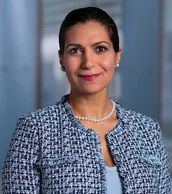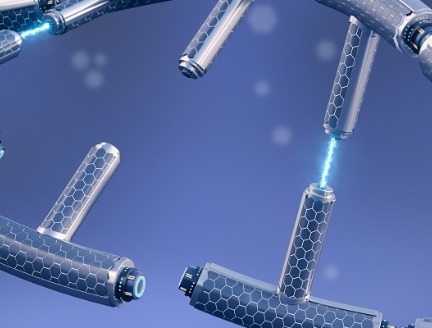



restorative medicine
Developing a Novel Brain Stimulation Treatment for MS Patients
Rose Khavari, MD, leads a clinical trial that could help MS patients find relief from overactive bladder symptoms.

Rose Khavari, MD
For the last 10 years, Houston Methodist’s Rose Khavari, MD, has been studying brain regions involved in bladder control.
As a surgeon-scientist and the Ben and Wendy Moreland Distinguished Chair in Urology, Khavari is particularly interested in the brain’s neuroplasticity—its unique ability to learn, adapt, and rewire itself to meet increased demands. This neuroplasticity could be key in helping Khavari establish a novel brain-centered treatment for neurogenic overactive bladder (NOAB) in multiple sclerosis (MS) patients.
MS affects myelination of neurons in the central nervous system, thus affecting the function of certain organs, such as the bladder. In fact, 88% percent of individuals with MS are affected by NOAB.
However, current bladder-focused therapies have limited efficacy and patient compliance is low.
“If we established a brain-centered treatment for NOAB in MS patients that targets brain lesions affecting bladder function, we may be able to address NOAB symptoms at their root,” Khavari explained.
In a 2022 pilot study, Khavari showed that a form of non-invasive brain stimulation (NBS) treatment in brain regions involved in bladder control can help rewire the brain networks to restore some its functional connectivity, thus sending healthier messages to the bladder. Half of the patients in this pilot study reported significantly improved symptoms.
Now, Khavari is gearing up for a phase II randomized, double-blind, sham-controlled clinical trial with an optional open-label extension (OLE) phase. This trial aims to assess the effects of targeted NBS in women with MS and NOAB and investigate the restoration of brain function and improvement in urinary frequency, urgency and incontinence.
Participants will undergo a minimum of 10 stimulation treatment sessions, with the option to continue in the OLE phase. Recruitment is currently underway for the five-year study.
Half of the patients in this pilot study reported significantly improved symptoms.
“NOAB is a tough problem for MS patients,” Khavari said. “Many patients don’t bring it up as early as they should because they may be embarrassed or have other MS symptoms that take priority, such as tremors, spasticity and vision impairment. However, NOAB can significantly affect quality of life, especially if it leads to social isolation and depression.”
Neurogenic overactive bladder can significantly affect quality of life, especially if it leads to social isolation and depression.
Rose Khavari, MD
Ben and Wendy Moreland Distinguished Chair in Urology and professor of urology
Moreover, Khavari hopes that her clinical trial findings create an avenue for treating NOAB caused by other neurological diseases, such as Parkinson’s and stroke.
“We also recognize that patients with non-neural overactive bladder may still benefit from NBS treatment,” Khavari noted. “That’s why we’re launching a parallel study targeting the same regions of the brain to help these individuals with bladder function.”
This parallel study will be led by Houston Methodist’s Rachel High, DO, a urogynecologist and clinical scholars awardee.
“We are elated to pioneer a novel brain-centric treatment for NOAB that could hold promise for other patients as well,” Khavari said. “Improving patients’ quality of life is our ultimate goal.”
Recruitment information for Khavari’s clinical trial is available at clinicaltrials.gov and the National Multiple Sclerosis Society website.
Share this story
Callie Rainosek, MS
May 2024







